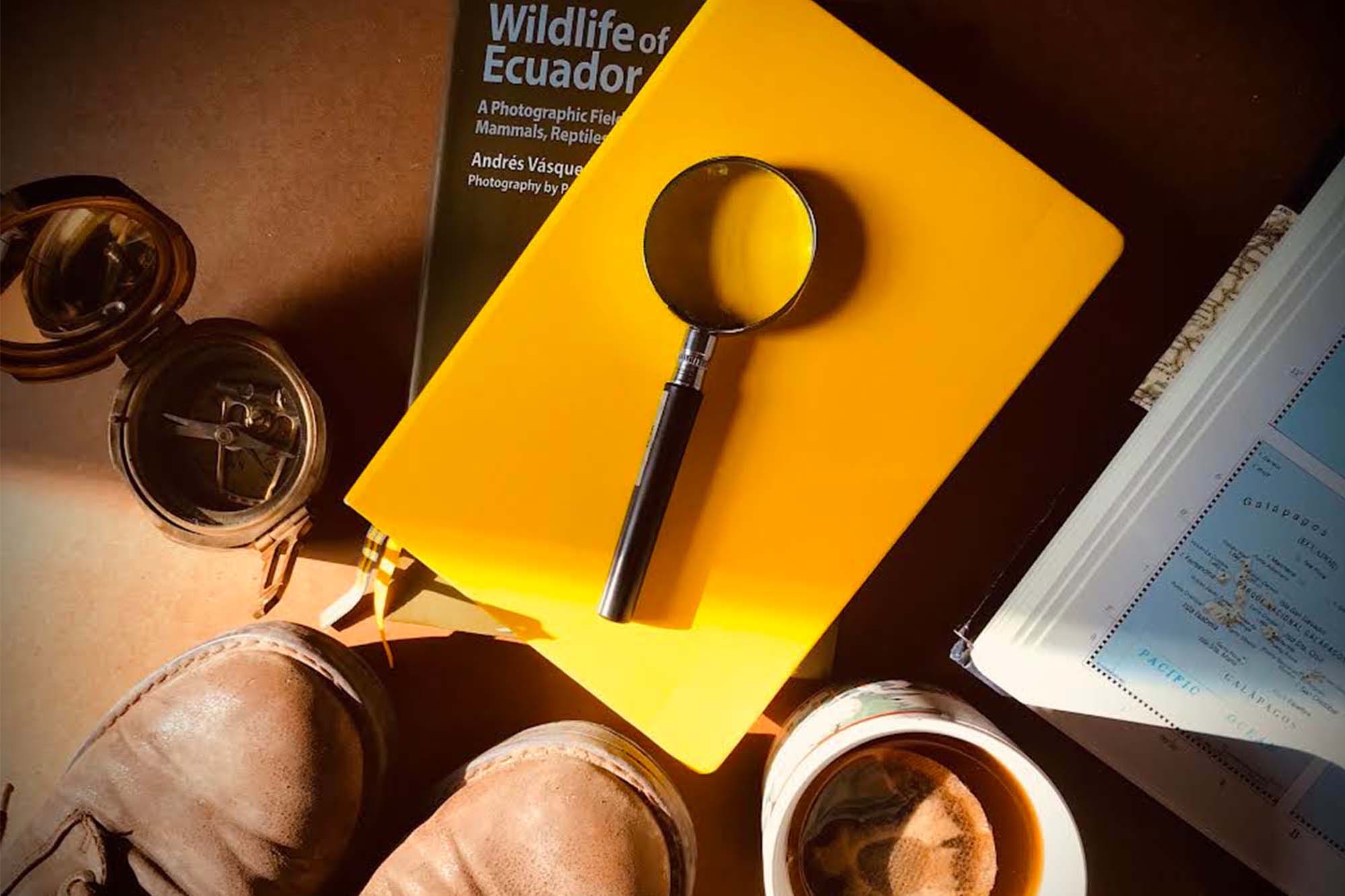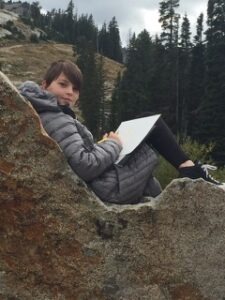
To whom it may concern,
Packing is an adventure.
January 17, 2022, Week 00 – Salt Lake City, UT
Getting ready to depart on a field expedition is always an adventure in and of itself. Amongst packing, COVID testing, homework, buying supplies, planning travel, and coordinating a study, we are all tired, and very ready to be on our way.
Consistent with Edward O. Wilson’s quote, “Real scientists do not take vacations. They take field trips.” When your parents are scientists, your vacations are ten-week-long excursions to an island to study flies living on birds. However, field work is quite a specific type of travel, so packing and planning for a field trip is very different from that of a weekend vacation, especially in a pandemic. Depending on your study, a variety of scientific equipment needs to be taken in addition to the usual clothes, entertainment, toiletries, etc.
This expedition’s purpose is to study avian vampire flies (Philornis downsi), and how these flies affect finches and mockingbirds in the Galápagos Islands. So, we’ll pack spotting scopes for watching birds, a field microscope for identifying flies, nets, and banding equipment so that we can give each bird a unique colored bracelet for identification. Most of these supplies are in a pile on our basement floor.
This week was moderately chaotic, to be expected of course before a field trip. We need to take into account many safety precautions in this lovely time of global pandemic. Flying the 3,163 miles to Santa Cruz Island, off the coast of mainland Ecuador takes two days. So, we need to plan COVID tests accordingly, meaning that we need to take two tests over the course of two days so that we have enough test results to stay up to date all the way to the island.
We also need masks. N-95 masks are proven to be more effective than KN-95, or fabric masks. We are isolating from my brother’s and my school, limiting our errands to the store, and avoiding contact with co-workers, friends, and family. In the event that one of our crew got Coronavirus, we would have to cancel our trip. We also need to be safe about diseases and sicknesses that are common in mainland Ecuador, we are vaccinated for Yellow Fever, and have anti-malarial medicine.
As I’m sure you’ve realized by now, researchers are very different from tourists. Often staying in one place for a long time to study. In the Galápagos, a tourist can stay for a maximum of 60 days. However when needed, a transúente (travel visa) can allow a visit of up to 90 days for researchers. Coordinating with the Galápagos national park, we are trying to get transúentes for our parents, Sarah and Dale, as well as the grad students, Mathew and Aoife.
My brother and I are registered as tourists, meaning that we can only stay on the islands for two months. When our travel expires, we are planning to go to a biodiversity field station in the Amazon Basin called “Tiputini,” where we can look for potential future studies.
This week we continue to plan our trip, and pack for the island. Getting ready to leave, finishing homework, and isolating until our departure.
If you are interested in following our expedition, check for new letters each week on the University Webpage, where you can find blog posts, and ask questions.
-Nora

Read all current letters through these links:
#1 #2 #3 #4
Link to landing page here
